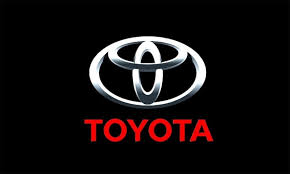
Customers in Japan may have to wait up to four years for the delivery of Toyota's new Land Cruiser SUV, according to the Japanese automaking giant.
The delay, according to the world's largest automaker, is unrelated to a global semiconductor shortage or a supply chain catastrophe.
It, on the other hand, refused to comment on the reasons for the lengthy delivery period.
Meanwhile, Toyota has announced that production at up to 11 factories in Japan may be slowed because to an increase in Covid-19 infections among its employees and parts suppliers.
"As Land Cruiser is very popular, not just in Japan but around the world, we apologize it is expected to take a long time before we can deliver the product," Toyota said on its website.
"There is a possibility it could take up to four years if you order now. We will continue to shorten the delivery time and we appreciate your understanding."
"This delay is not related to current semiconductor shortage or supply chain issue," the company also said.
According to reports, the new Land Cruiser model has been in high demand, and Toyota is contemplating increasing manufacturing in the medium and long term.
The Land Cruiser, which debuted in 1951 and has sold a total of 10.6 million units as of August last year, is Toyota's most popular vehicle.
In recent months, the company, like many of its competitors such as General Motors, Ford, Nissan, Daimler, BMW, and Renault, has been compelled to reduce vehicle production.
Toyota stated last month that it would extend work stoppages at certain of its Japanese operations as a result of supply chain concerns.
A new wave of the Covid-19 pandemic has resulted in operational disruptions at Toyota’s components factories in South East Asia and this delay and shortage of components has severely impacted the production of the Land Cruiser and the Lexus, the Japanese company said.
An announcement was made last year in September by the company of reducing its target for vehicle production globally by as much as 40 per cent due to the ongoing global chip shortage.
The stocks of the company in Tokyo dropped by 2.7 per cent, following the warning by the company.
This announcement by the company was preceded by a surge in Covid-19 cases in Japan since the beginning of the year caused by the fast spreading Omicron variant of the coronavirus.
(Source:www.bloombergquint.com)
The delay, according to the world's largest automaker, is unrelated to a global semiconductor shortage or a supply chain catastrophe.
It, on the other hand, refused to comment on the reasons for the lengthy delivery period.
Meanwhile, Toyota has announced that production at up to 11 factories in Japan may be slowed because to an increase in Covid-19 infections among its employees and parts suppliers.
"As Land Cruiser is very popular, not just in Japan but around the world, we apologize it is expected to take a long time before we can deliver the product," Toyota said on its website.
"There is a possibility it could take up to four years if you order now. We will continue to shorten the delivery time and we appreciate your understanding."
"This delay is not related to current semiconductor shortage or supply chain issue," the company also said.
According to reports, the new Land Cruiser model has been in high demand, and Toyota is contemplating increasing manufacturing in the medium and long term.
The Land Cruiser, which debuted in 1951 and has sold a total of 10.6 million units as of August last year, is Toyota's most popular vehicle.
In recent months, the company, like many of its competitors such as General Motors, Ford, Nissan, Daimler, BMW, and Renault, has been compelled to reduce vehicle production.
Toyota stated last month that it would extend work stoppages at certain of its Japanese operations as a result of supply chain concerns.
A new wave of the Covid-19 pandemic has resulted in operational disruptions at Toyota’s components factories in South East Asia and this delay and shortage of components has severely impacted the production of the Land Cruiser and the Lexus, the Japanese company said.
An announcement was made last year in September by the company of reducing its target for vehicle production globally by as much as 40 per cent due to the ongoing global chip shortage.
The stocks of the company in Tokyo dropped by 2.7 per cent, following the warning by the company.
This announcement by the company was preceded by a surge in Covid-19 cases in Japan since the beginning of the year caused by the fast spreading Omicron variant of the coronavirus.
(Source:www.bloombergquint.com)














